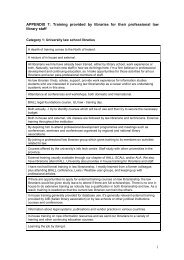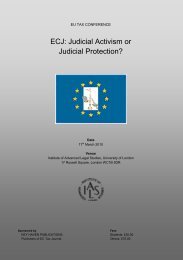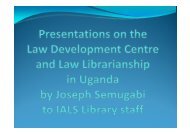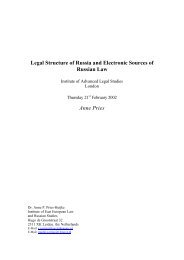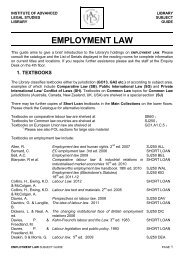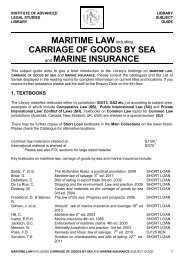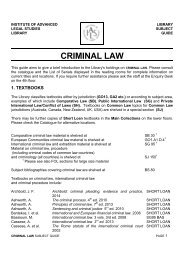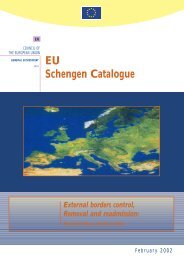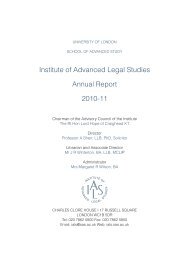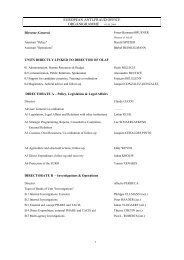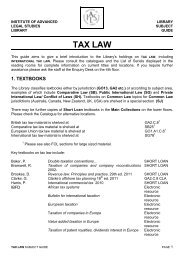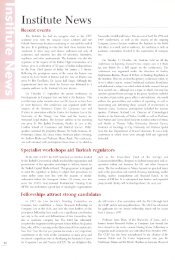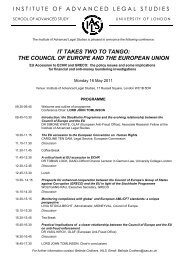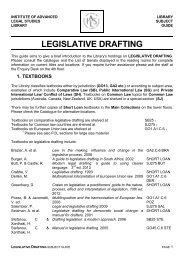a thesis - Institute of Advanced Legal Studies
a thesis - Institute of Advanced Legal Studies
a thesis - Institute of Advanced Legal Studies
Create successful ePaper yourself
Turn your PDF publications into a flip-book with our unique Google optimized e-Paper software.
INVALIDATING CAUSES. 75<br />
CHAPTER XI.—INVALIDATING CAUSES.<br />
No trust is enforceable if its creation has been induced<br />
by fraud, duress, undue influence or mistake, or if it is<br />
created for a fraudulent purpose or any purpose forbidden<br />
by law.<br />
A trust, like a sale, gift, mortgage or contract, is liable to be<br />
invalidated by fraud, duress, undue influence, mistake or illegality.<br />
The detailed consideration <strong>of</strong> these matters does not, strictly<br />
speaking, form part <strong>of</strong> the law <strong>of</strong> trusts, but there are certain<br />
instances in which they have a special importance in that branch<br />
<strong>of</strong> law.<br />
FRAUD.<br />
" Fraud vitiates everything," and if a party has been induced<br />
to enter into a transaction by the fraud <strong>of</strong> another the transaction<br />
is void. There seem to be but few reported decisions in which a<br />
trust has been set aside on this ground as distinct from the particular<br />
species <strong>of</strong> fraud known as undue influence, but in the case<br />
<strong>of</strong> Evans v. Carrington (1860, 2 D. F. & J. 481), where a wife had<br />
fraudulently induced her husband to execute a separation deed<br />
which constituted a trust in her favour, the deed was set aside on<br />
the husband's application. Where, however, the trust has been<br />
created for valuable consideration, in order to obtain relief there<br />
must be restitutio in integrutn. If, therefore, the trust is contained<br />
in an ante-nuptial settlement, being founded on a valuable consideration<br />
which cannot be restored, it cannot be set aside even though it<br />
was induced by fraudulent misrepresentation. In Johnston v. Johnston<br />
(1884,53 L. J. Ch. 1014), the action was brought by a husband<br />
to set aside an ante-nuptial settlement which he had made on his<br />
wife, who had falsely asserted that she had obtained a divorce from<br />
her first husband by reason <strong>of</strong> his adultery and cruelty, and that<br />
she had not cohabited with her second husband before her marriage<br />
with him. As a matter <strong>of</strong> fact, however, the wife had been divorced<br />
by her first husband by reason <strong>of</strong> her adultery with her second



